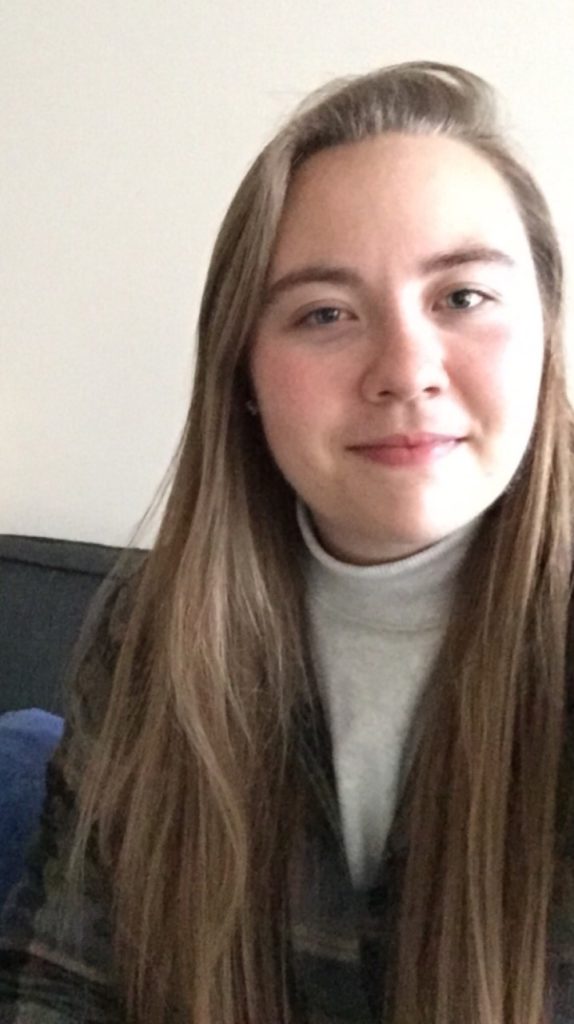
Year in Program: 4th
Fields: Modern United States, Modern European, Cultural and Intellectual, Film/Modernism
Advisor: Michael Stamm
Committee: Kirsten Fermaglich, Sean Forner, Josh Yumibe
Research Languages: French, German
Educational Background: B.A. with Honors, Elmira College (2017)
Email: slugamck@msu.edu
I am a fourth-year Ph.D. candidate with an interest in twentieth-century American radical and extremist movements of both the Left and Right. The radicalization processes individuals and groups undergo as well as the ways in which they mobilize to connect theory and action are the underpinnings of my work. I am particularly attentive to how avant-garde and modern art and film are connected to social-political movements. My work also explores relationships between “high” and “popular” culture as well as how intellectuals have engaged with creative industries, culture, society, and politics in primarily urban spaces.
Thematically, my research investigates intersections across cultural, social, political, and intellectual movements. Film’s relationship to modern art is also a major theme. Geographically, I focus on cultural history and radicalism in the United States with emphasis on transnational connections among the United States, Europe, and the Soviet Union. My current projects center how visual culture from Europe and the Soviet Union have influenced how American intellectuals understand and construct national identity through art and criticism to build cultural institutions.
My dissertation “Teaching Modernism, Brokering Taste: Education, Aesthetics, and Politics in New York City, 1913-1947” focuses on culture brokers who meidated the value of modernist and avant-garde art and film in the United States. Many created their own journals, cinemas, galleries, distribution groups, workshops, and schools/curriculums to teach audiences about modern art and to cultivate a taste for it. My project centers independent cultural-political organizations in NYC that rejected tradtional institutions and engaged with European and Soviet groups. American brokers’ pedagogical strategies, self-teaching, and amateur approaches were instrumental in creating education during a time when formal or professional modern art and film institutions were not yet widespread.
I am a Residential College of Arts And Humanities Graduate Fellow and currently work with the Social Science Scholars Program. Scholarship of Teaching and Learning is a burgeoning research interest of mine to explore how historians effectively communicate care to their students and create spaces of community. I’m also interested in how historians can draw on interdisciplinary methods in their teaching and training as well as how teaching practices change over time.
I double majored in History and American Studies and minored in Philosophy at Elmira College, where I earned my B.A. with Summa Cum Laude Latin Honors and completed the Honors Program. I was also a 2017 Gilder Lehrman American History Honors Scholar Award recipient. Earlier research projects focused on the relationship between radical social-political movements and radical artistic-intellectual movements of both the United States and Europe. Some examples include US Leftism/Marxism and Social Surrealism of the 1930s; Italian Fascism and Futurism; German Nazism and Modernism; Situationist International theory and Atelier Populaire poster art during the 1968 French revolts; the 1960s-1970s Black Power and Black Arts Movements; and Afro-Cuban/Martiniquean Marxism and Surrealism.
TA appointments:
HST 203: US History 1876 to present (Summer 2020-online)
PSY 292: Global Inequality–Social Science Scholars Program (Fall 2019 and Fall 2020)
HST 202: US History to 1876 (Summer 2019 and Summer 2020-online)
GEO 211: Environment and Policy–Social Science Scholars Program (Spring 2019, Spring 2020, and Spring 2021)
HST 304: The American Civil War (Summer 2018-online)
IAH 203: Latin America and the World (Spring 2018)
HST 392: History of the Holocaust (Fall 2017 and Fall 2018)
RA appointments:
Dr. Lisa Fine (Spring 2019)